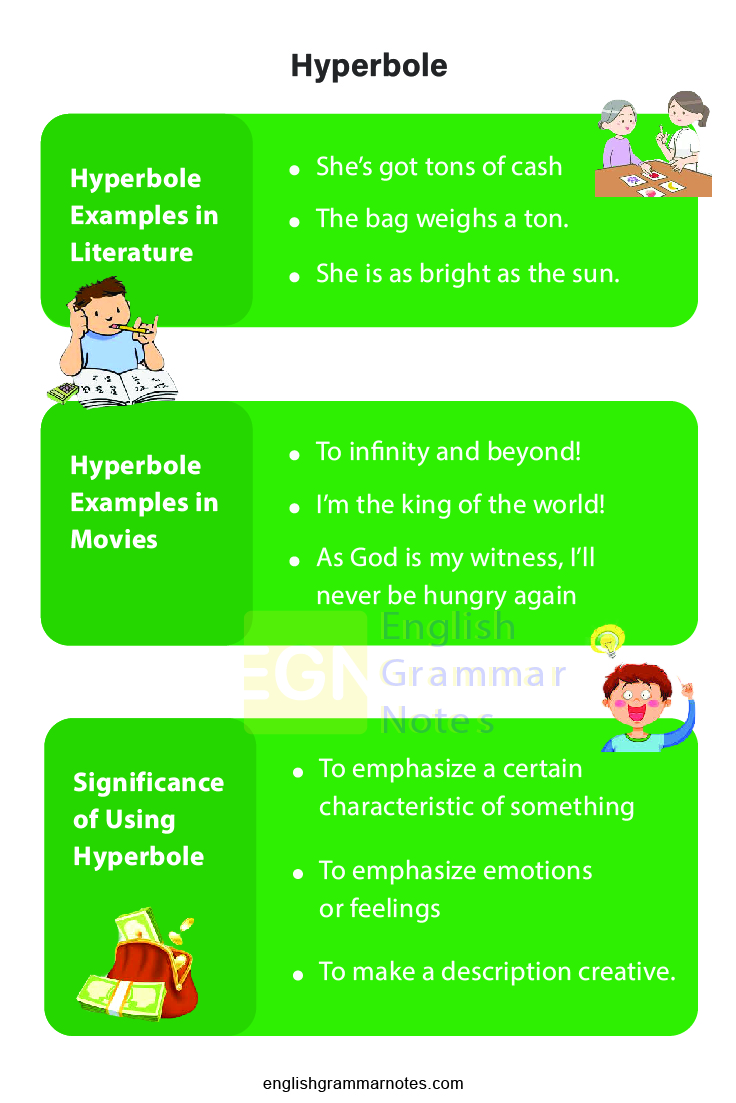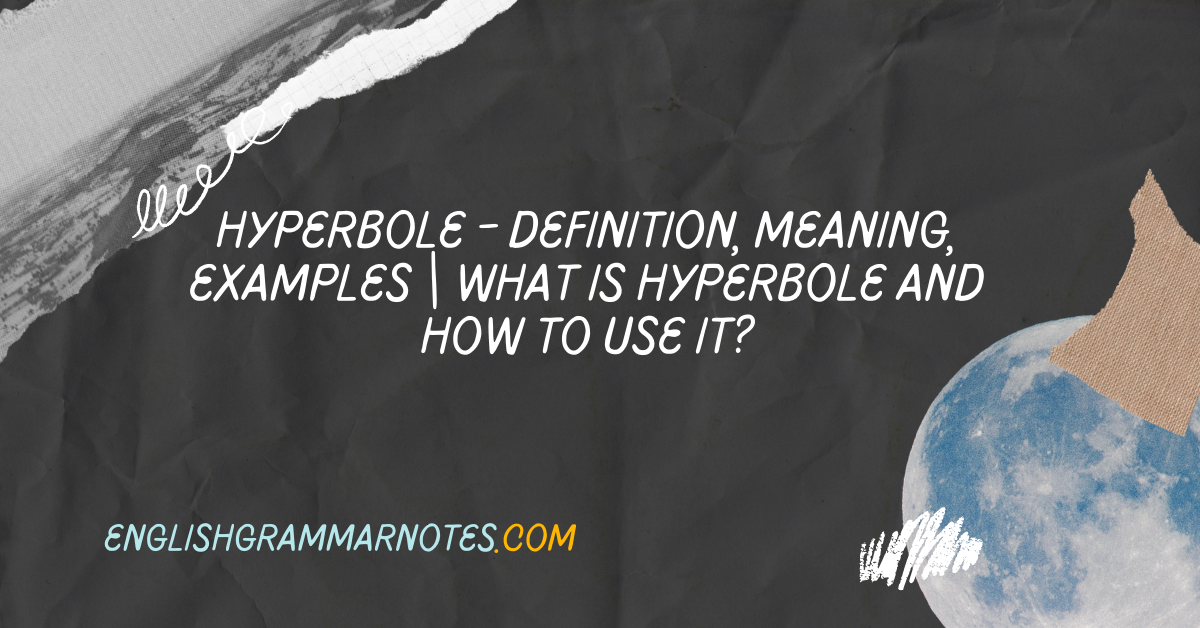Hyperbole is a figure of speech that helps you create a heightened effect through exaggeration. Hyperbole can be considered as an exaggerated or overstated statement that adds emphasis to a sentence or line. Hyperbole can be used to produce ironic, serious, or comic effects.
The use of hyperbole is most apt in satires. The use of hyperbole in satire makes ideas, events, or persons larger than life or lesser than life with its exaggeration. Some of the closest synonyms that can be associated with hyperbole include: overplaying, exaggeration, overstatement, magnification, excess, overkill, or puffery.
- Origin of the Word Hyperbole
- Hyperbole Examples in Literature
- Hyperbole Examples in Movies
- Hyperbole and Overstatement
- Hyperbole vs Simile and Metaphor
- Significance of Using Hyperbole
- How to write a Hyperbole?
- FAQs on Hyperbole
Origin of the Word Hyperbole
The word hyperbole has its roots in the Greek word “huperbole” meaning to “throw above”.
Hyperbole Examples in Literature
More than a literary device, hyperbole is a technique that is used even in everyday conversation. Given below is a list of everyday usage of hyperbole:
- She’s got tons of cash
- The car was faster than lightning
- I am going to die of embarrassment.
- He is so hungry that he can eat a horse
- The bag weighs a ton.
- She is as bright as the sun.
Hyperbole Examples in Movies
Today, even movies make use of the figure of speech, hyperbole. Given below are a few hyperboles used in famous movies:
- To infinity and beyond! (Toy Story)
- I’m the king of the world! (Titanic)
- As God is my witness, I’ll never be hungry again (Gone with the Wind)
Hyperbole and Overstatement
Even though the terms hyperbole and overstatement are used interchangeably, there exist subtle differences between them. A hyperbole like an overstatement is an exaggeration, but its effect is often more excessive than an overstatement. However, both of these can be considered literary devices.
Hyperbole vs Simile and Metaphor
Like Simile and Metaphor, hyperbole is not a figure of speech used for comparison. On the other hand, hyperbole is an extravagant overstatement not meant to be taken literally.
Significance of Using Hyperbole
Hyperbole is used commonly for the following reasons:
- To emphasize a certain characteristic of something
- To emphasize emotions or feelings
- To make a description creative.
- To inject humor or irony into the context.

How to write a Hyperbole?
Now that you are already familiar with what hyperbole is and various examples, using them becomes pretty much simple.
- Decide on what is that you want to describe
- Think of any quality of the thing that you intend to describe and exaggerate
- Now directly from for a creatively exaggerated way to describe that.
See More:
FAQs on Hyperbole
1. What is Hyperbole?
Hyperbole is a figure of speech that creates a heightened effect through exaggeration. Hyperbole can be considered as an exaggerated or overstated statement that adds emphasis to a sentence or line.
2. What are some of the common examples of hyperbole?
Some examples of hyperbole include:
- The bag weighs a ton.
- I am so tired that I can sleep for a month
- She’s got tons of cash
- The car was faster than lightning
3. What are the benefits of using hyperbole?
The benefits of using hyperbole include
- It helps to emphasize a certain characteristic of something or emotions or feelings.
- Hyperbole also makes a description creative and injects humor or irony into the context.
Conclusion
Hyperbole is one of the simplest techniques by which you can make your writings unique and creative. The use of hyperbole helps you to emphasize the main idea you intend to convey. If used appropriately, a hyperbole’s effect is large and impactful, thereby drawing the attention of the reader. However, be careful not to overdo the overstatement!
